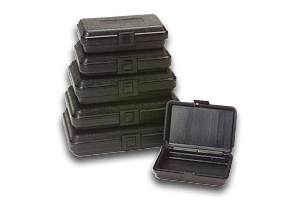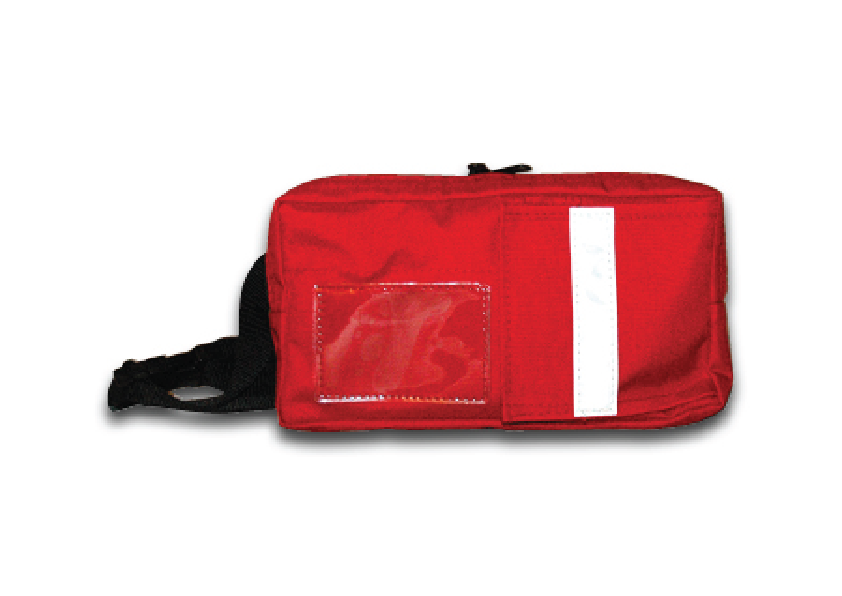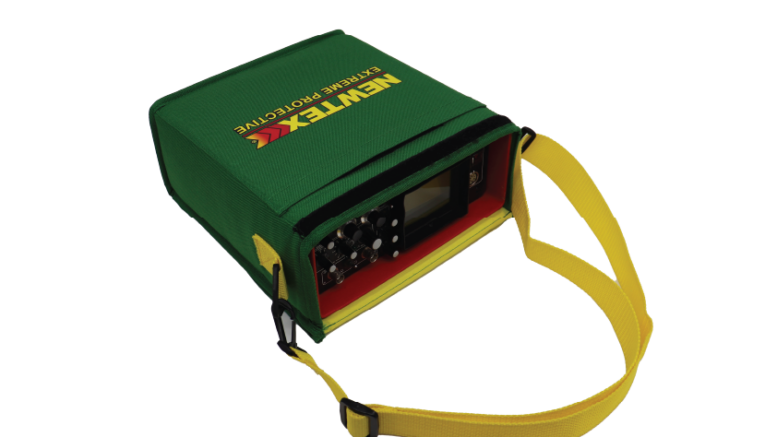When you’re choosing a protective case for your gear, there’s a classic debate: padded soft case vs. hard case. Both are designed to safeguard your equipment, but they solve different problems—and not all use cases are created equal.

At Fieldtex, we manufacture padded soft-sided cases and distribute hard-sided ones. After years of working with customers across healthcare, telecom, industrial trades, and public safety, we’ve seen what works—and where. If you carry equipment daily, our advice is simple: choose a padded soft case. Here’s why.
At a Glance: Soft vs. Hard Case Comparison
| Feature | Padded Soft Case | Hard Case |
|---|---|---|
| Weight | 30–40% lighter | Heavier, rigid construction |
| Portability | Flexible, body-conforming | Bulky, uncomfortable to carry long distances |
| Protection | Excellent shock absorption | Excellent crush and drop protection |
| Ideal Use | Daily carry, mobile professionals | Air travel, shipping, warehouse storage |
| Customization | High (interior foam, pockets, straps) | Medium (foam inserts, less adaptable layout) |
| Comfort | High | Low |
Weight Matters: Why Lighter is Better
Soft cases are on average 30–40% lighter than hard-shell counterparts. That might not sound like much—until you’re climbing stairs, crouching into tight spaces, or hauling gear across a job site. For:
- Patients carrying medical equipment,
- Field technicians servicing power lines,
- Or sales reps lugging demo kits between meetings…
That lighter load isn’t just convenient—it prevents fatigue and boosts efficiency.
Comfort on the Move

Hard cases don’t flex. They bump your legs, dig into your side, and aren’t great travel companions. Soft cases, on the other hand, move with you. They mold to your body, fit easily under seats, and stay out of your way while you climb ladders or navigate crowded areas.
We’ve heard this time and time again from electricians, EMS techs, and even musicians: soft cases are easier on your back, your workflow, and your sanity.
But Are Soft Cases Protective Enough?
Short answer: yes.
The long answer? A well-built soft case with a 1-inch padded foam wall can absorb shock from drops and knocks just as well as a hard case—for most day-to-day use. And today’s padded soft cases include:
- Reinforced panels for structure,
- Internal tie-downs to prevent movement,
- Organizers and dividers to cushion sensitive components.
Unless you’re handing your gear over to TSA or a freight carrier, a padded soft case offers plenty of protection.
When a Hard Case Makes Sense
We’re not throwing shade at hard cases. They’re great for:
- Checked luggage and air travel
- Shipping gear via UPS or freight
- High-risk environments like warehouses or military operations
In those scenarios, the crush resistance of rigid plastic or metal is necessary. That’s why we carry and recommend hard-sided options for customers with those needs.
But for everything else? Soft is the way to go.
What Real-World Users Say: Cross-Industry Preference for Soft Cases
We’re not the only ones noticing a trend toward padded soft cases—real-world users across multiple industries are reaching the same conclusion.
In Field Service and Medical Equipment
One of our telecom clients reported a 50% reduction in fatigue complaints from technicians after switching from hard cases to padded soft options for diagnostic tools. Similarly, a durable medical equipment provider saw a 3:1 sales ratio favoring soft-sided kits over hard ones in portable oxygen carry solutions.
In Music Performance
On musician forums, performers frequently praise soft gig bags as their go-to for local gigs and rehearsals. The main reasons? Light weight, ease of transport, and comfort during daily commutes. While a few professionals still use hard cases for air travel or expensive vintage gear, soft cases are the dominant choice for regular use.
In the Sports World
Golfers on forums like Titleist.com regularly discuss their preferences—and many prefer soft travel bags once off the plane. While hard cases are favored for air travel, most golfers switch to soft-sided carry bags for everyday use due to their maneuverability and comfort.
What We Learned from This Research
Across industries—from healthcare and telecom to music and sports—the pattern is consistent:
Soft-sided cases are the preferred option for on-the-go professionals who value comfort, portability, and practicality.
Whether it’s a lineman with a toolkit, a guitarist heading to a gig, or a golfer managing gear between rounds, the feedback points to one conclusion:
So…Soft or Hard? Here’s Our Take
If you need:
- Daily portability,
- Comfort on the go,
- Reliable protection for regular handling…
Then padded soft cases offer the perfect mix of performance and practicality.
Need maximum impact resistance for shipping, storage, or extreme handling? That’s hard-case territory.
Choose Smart. Choose Soft.
At Fieldtex, we specialize in custom soft-sided padded cases for nearly every industry—from healthcare to utilities to sports and beyond. We can help you design a case that matches your equipment, brand, and real-world use.
Let’s talk about what your gear really needs.
Contact us now to build your ideal soft case.

